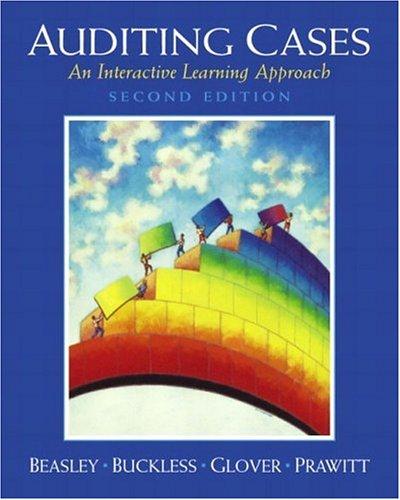Question
1-The biggest difference between aboriginal and British and French laws is: a.aboriginal law is not based on legal principles b.aboriginal law does not define private
1-The biggest difference between aboriginal and British and French laws is:
a.aboriginal law is not based on legal principles
b.aboriginal law does not define private property
c.aboriginal law is not based on precedent
d.all of the above
2- Loi Civile or Civil Law is based on:
a.private law
b.torts and contracts
c.Napoleonic and Roman law
d.codes of procedure
3- Star Decisis refers to:
a.following the reason of an earlier decision
b.stating case law
c.creating decisions that make sense
d.none of the above
4- The highest court of appeal in Canada is the same for criminal and civil cases.
a.Falseb. True
5-Constitutional law comes from:
a.statutes
b.case Law
c.Charter of Rights
d.all of the above
6- If I fail to do something I should have this is called a/an:
a.omission
b.commission
c.negligence
d.intentional tort.
7-If I deliberately hit someone I:
a.am negligent and can be sued
b.necessarily committed an intentional tort and have no defence
c.necessarily committed a crime and a tort of assault
d.none of the above
8- The head of state is:
a.Queen Elizabeth of the House of Windsor
b.Justin Trudeau, Prime Minister of Canada
c.The Governor General, formerly Julie Payette
d.The Chief Justice of the Supreme Court of Canada
9- To pass a bill in the House of Parliament it must go through how many readings?
a.1
b.2
c.3
d.4
10. A contract is governed by:
a. federal lawb. provincial lawc. municipal lawd. one of the above
11. If contract terms are vague or ambiguous, they are read in favour of:
a. the person who drafted the contract-buyer beware!b. the consumerc. the person who did not draft the contractd. all of the above
12. The freedoms in the Charter of Rights are absolute:
a. trueb. false
13- Strict liability refers to:
a.standard of care you should have engage din
b.level or degree or intensity of negligence
c.limited defence of due diligence
d.none of the above
14- An inevitable accident means:
a.it could not be avoided butthe Defendant is still responsible for it
b.a defence for strict liability
c.a defence for all types of liability
d.a defence for unintentional torts
15- Defamation is communicated by:
a.allegation, denunciation, pronounciation
b.judgement, accusation, inquisition
c.oral or written comment
d.publication or conduct
16. A defence to defamation is that:
a. the comment was trueb. the comment caused no damagec. the comment was made as a subjective opiniond. all of the above or none of the above
17. The civil service administers and so hires and fires those in the Judiciary.
a. only some not all employeesb. yes its called the Ministry of Justice federally, Attorney General's office provinciallyc. the Judiciary is appointed by the elected assembly through orders they directd. the Judiciary must write tests administered by the government
18. The test for whether someone acted negligently is:
a. reasonable person testb. reasonable foreseeability testc. but for testd. all of the above
19. A person is considered by law to be competent until proven incompetent.
a. Trueb. False
20.A good Samaritan will not be sued for saving a life.
a. Trueb. false
Step by Step Solution
There are 3 Steps involved in it
Step: 1

Get Instant Access to Expert-Tailored Solutions
See step-by-step solutions with expert insights and AI powered tools for academic success
Step: 2

Step: 3

Ace Your Homework with AI
Get the answers you need in no time with our AI-driven, step-by-step assistance
Get Started


